As videogames go, I think we can safely say Bezier is a videogame. I mean, just look at that, right?
In some ways it is, visually, to arena shooters what Minter’s tour-de-force GAME FROM THE SPACE FUTURE Space Giraffe is to the tube shooter. A slightly raw, incredibly digital affair where you’re always uncertain what it’s going to land on you next.
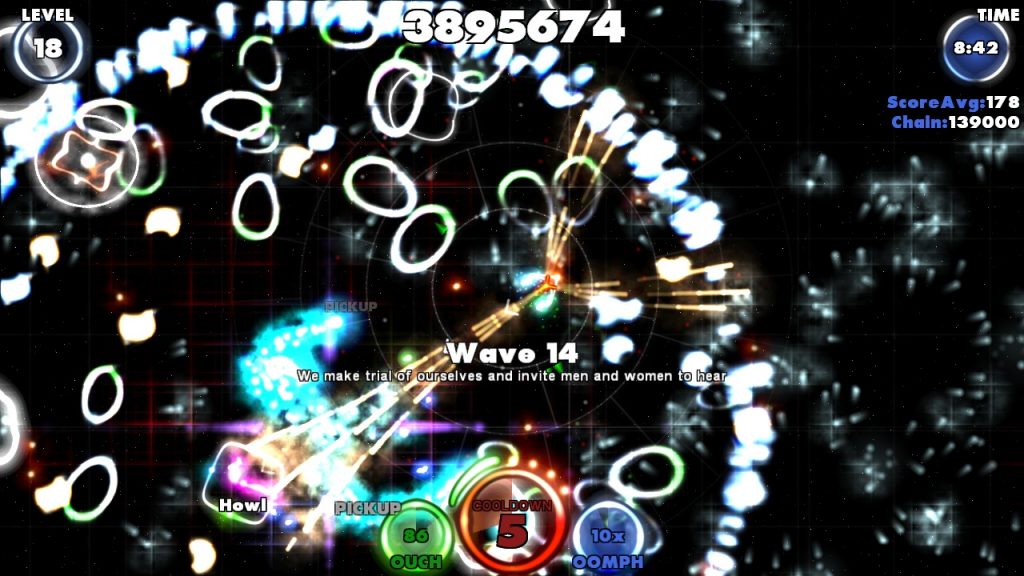
But of course, there’s only one Space Giraffe and Bezier, whilst not pulling its punches in the visual department, it’s certainly a far more controlled affair. Then again, what isn’t a far more controlled affair compared to Space Giraffe, right?
It’s also some sort of science fiction synth-prog-opera made videogame. I know, it *is* though.
In other words, Bezier is absolutely the sort of thing that I’m going to fall in love with terribly easily.
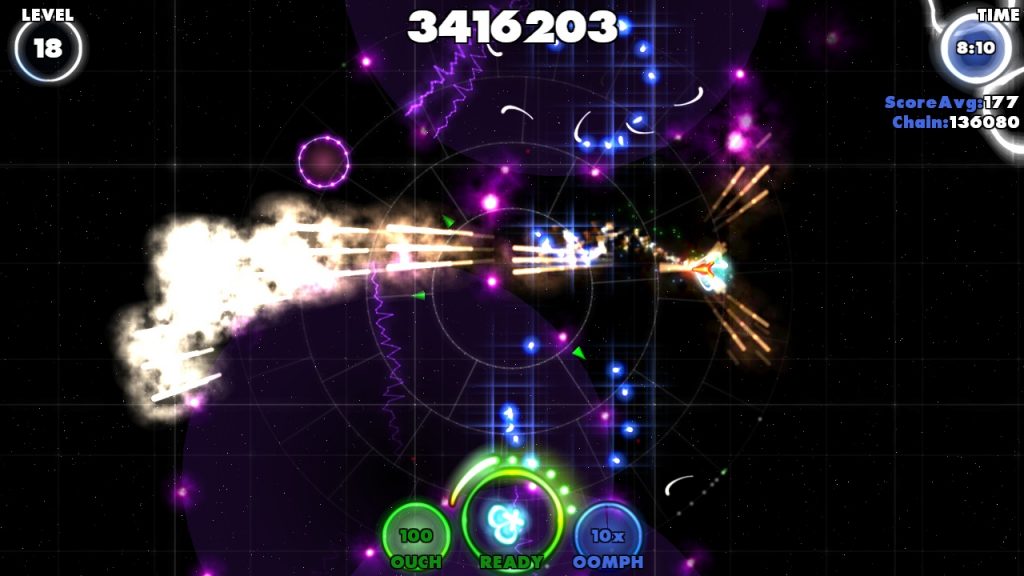
I’ve been banging my head against a table and trying to think precisely what it reminds me of and I’m kinda glad to be drawing a blank in many ways.
It’s a little bit Buggles, a little bit Jeff Wayne, the videogame equivalent of an eighties Jean Michel Jarre concert and frankly, it wouldn’t surprise me if it turned out that Philip Bak (the author of the game) wasn’t really Philip Bak at all but in fact The Phantom Of The Paradise come back to haunt us but this time with videogames.
It could happen. I asked a policeman and everything and he totally said it could.
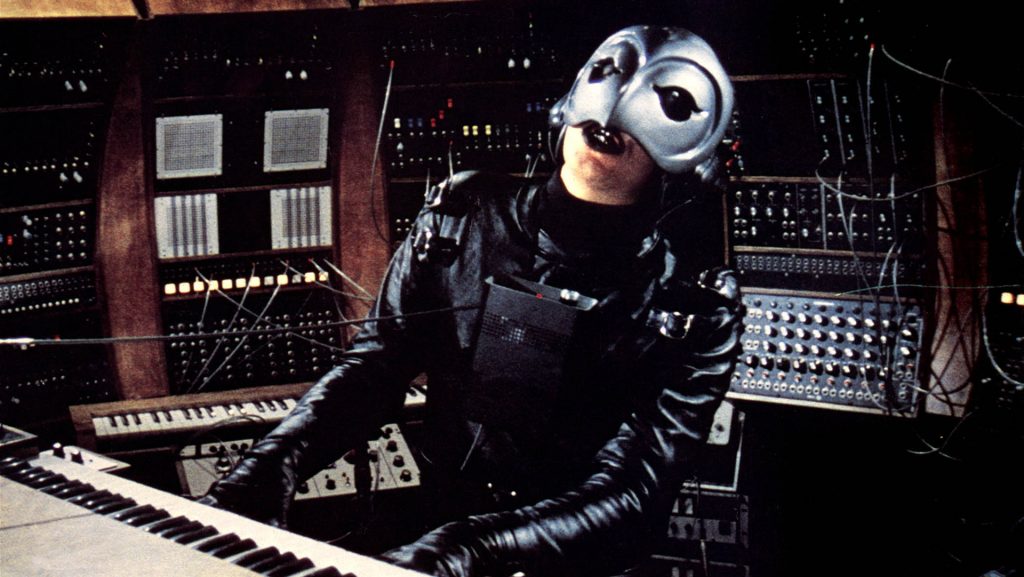
Thankfully, unlike Phantom Of The Paradise, Bezier isn’t a deeply cynical thing. It is however marvellously committed to its conceits. Chris Donlan covered the “Why Bezier?” stuff in his Eurogamer write up and that’s worth a quick scan over as always.
It’s a game where infusing Bezier curves in as many aspects as the game as possible is the least absurd thing about it. It wears the skin of a brutal arena shooter yet at the very same time the game remains remarkably accommodating to anyone who’s fairly not used to a twin stick set up.
It’s a game that manages to feel comfy and conventional whilst not really being either. It’s quite a thing.
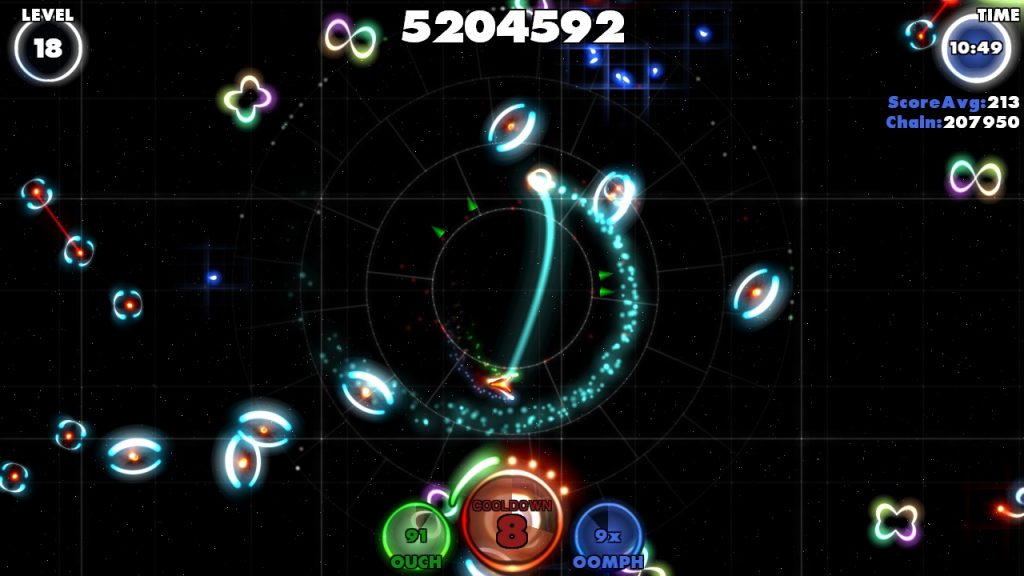
If I were to sit you down and describe the game mechanically, I doubt I’d be able to get much further than “well, you move around an arena and you shoot some things” which may well show an incredible lack of imagination on my part but it’s also a very very accurate description of what Bezier is.
Of course, not all arena shooters are created equally or push players in the same direction.
Whereas something like Geometry Wars is all about chasing the high score, Bezier sort of has that but nudges it to one side in favour of making just playing the game being a thing you’d want to do.
It’s certainly in no particular rush to kill you most of the time unlike most arena shooters that build on arcade templates. A game of Bezier can go on for quite a while because Bezier wants you to see the game. And more so, Bezier really wants you to hear the game.
Which I guess brings us back round to Bezier being the videogame as eighties Jean Michel Jarre concert. Seriously, listen to the soundtrack and you’ll see what I mean.
Bezier is a game that demands to be heard. It’s not Jarre (far too film soundtrack-y for one thing), it’s very much its own thing but! once the soundtrack is heard inside the game it’s clear just how much Bezier shares the same deep love of bombast, lasers and robot voices that defined Jarre concerts in the eighties. You can feel it in your bones.
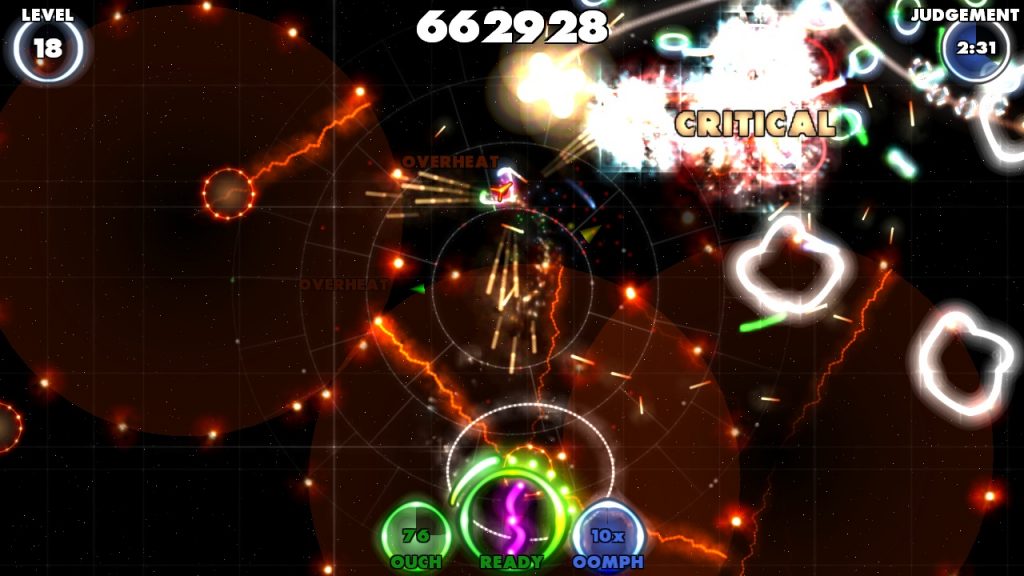
If only it were all that simple though, the game is married to a wonderfully ridiculous science fiction plot and there’s a giant smiley face that taunts you at the end of each round and you’re a floaty thing with lasers and there’s all the colour and and and.
I don’t know, maybe that’s acid house turning up to sign the death warrant of eighties synth pop or something. Maybe. I haven’t checked with a policeman on this one, sorry.
Regardless, it’s all makes for a captivating, unique and nothing less than remarkable experience. I love it so very much.
Bezier is available from NiineGames right now for yer Windows PC.
[Article originally published in March 2015, tweaked a bit for 2020]
